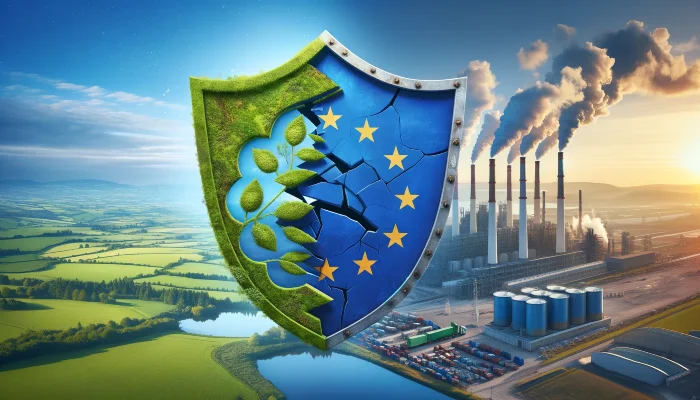A New Era of Transparency: EU Cracks Down on Misleading Eco-Claims
In a monumental decision that’s set to transform the landscape of environmental marketing, the European Union has declared war on ‘greenwashing’. By 2026, buzzwords like “climate neutral” or “eco-friendly” won’t fly any more unless they’re backed by hard evidence.
This seismic shift, and that’s not greenwashing, aims to hold companies accountable for their environmental claims, ensuring they’re not just empty promises but genuine reflections of eco-friendly practices.
The MEPs’ vote to outlaw casual use of terms like “environmentally friendly”, “natural”, “biodegradable”, and “eco” is a game-changer. Now, to claim a product or service is “climate positive” or “biodegradable”, businesses must provide substantial proof. This is a big move in a world where catchy eco-labels have often been more about marketing than meaningful environmental action.
The End of Carbon Offsetting as Proof of Eco-Friendliness
In a landmark decision, the EU is banning the use of carbon offsetting schemes as a means to justify environmental claims. This crackdown comes amidst growing concerns about the efficacy and impact of such schemes. The message is clear: slapping a “carbon-neutral” label on products and services won’t be enough. Companies will need to do more than invest in carbon offset projects to make bold environmental claims.
Anna Cavazzini, a key figure in this legislation, emphasized this shift, stating, “I am particularly pleased that claims such as “climate-neutral” or “climate-positive”, which are based on CO2 offsetting, have been completely banned from the internal market. Investments by companies in climate protection projects are welcome and of course they can still be communicated,”

However, she noted, “It should no longer appear that planting trees in the rainforest makes the industrial production of a car, the organization of a soccer World Cup or the production of cosmetics climate neutral. This deception is now a thing of the past. This is a great success for the environment, the climate, and consumers.”
Bridging the Gap: Months of Negotiations to a Landmark Directive
This directive is the fruit of intense negotiations and a commitment to more rigorous environmental regulation within the EU. The member states have a two-year window to implement these new rules, marking a significant step towards more honest and transparent environmental advertising.
The Guardian’s Expose: A Catalyst for Change
The directive’s timing is notable, coming on the heels of a critical investigation by The Guardian. Their January report, in collaboration with environmental experts, revealed alarming inefficiencies in the world’s leading forest carbon offset certifier. Over 90% of offsets from a large sample were deemed ineffective, calling into question the reliability of many corporate sustainability commitments.
More To Discover
- Science Class or Beef Commercial? How the Beef Industry is Targeting Your Kids’ Classrooms
- 12 Nations in Europe Are Leading The Charge Against Lab-Grown Meat
- Only 3% Bamboo: ‘Sustainable’ Toilet Paper Companies Caught Lying
- Germany Invests $8 Billion to Rescue Key Green Energy Firm Amid Energy Transition
Beyond Advertising: A Broader Impact on Environmental Claims
This agreement doesn’t just affect advertising. It echoes across all sectors, challenging events like the 2022 World Cup in Qatar, which boasted of being a “carbon-neutral” event, but was far from it.
Lindsay Otis, a policy expert on global carbon markets at CMW, hailed this as a significant step towards ending misleading commercial practices. “Carbon neutrality claims have been shown to be unintelligible to consumers, and they must stop. Today marks the end of outlandish and baseless advertisements that tell European consumers that they can take carbon-neutral flights, wear carbon-neutral clothes, and eat carbon-neutral food.”



















